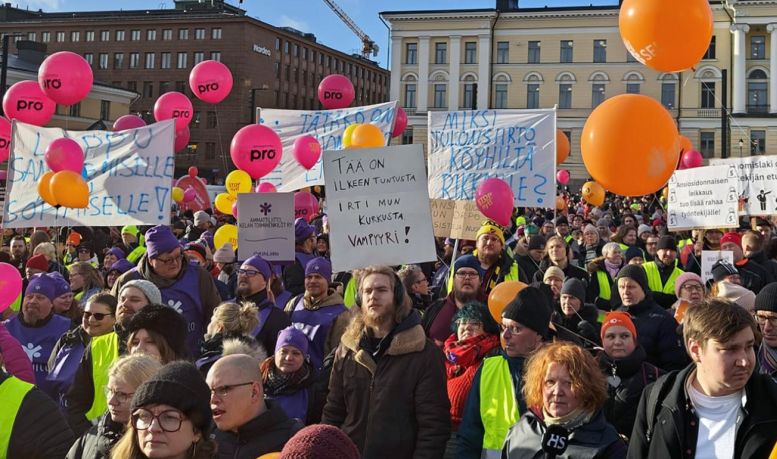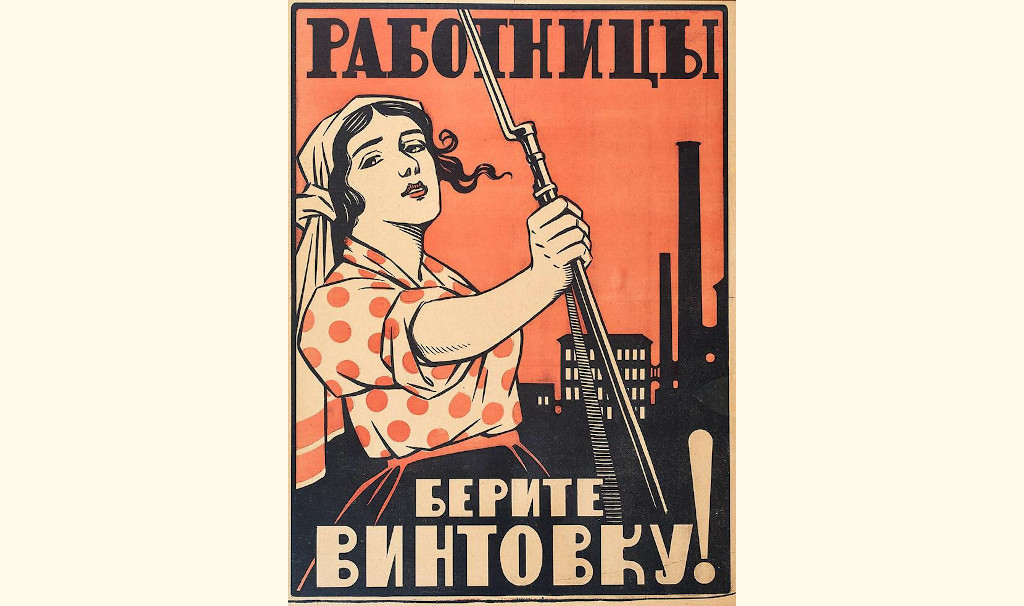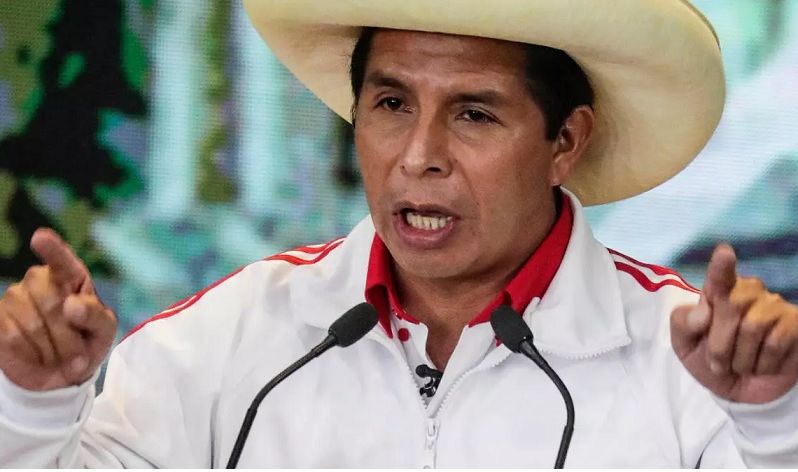Per Olsson is a member of Socialistiskt Alternativ (ISA in Sweden).
On Thursday and Friday (February 1 and 2), 290,000 Finnish workers held two days of strike, in the largest ever trade union mobilisation to protest against the draconian attacks on welfare, job security, the right to strike and collective bargaining by the country’s right-wing government. The strikes halted much of Finland’s air traffic, hit oil refinery output and close many shops, factories and kindergartens.
They main union federations held a giant joint demonstration under the slogan “Stop-now!” in Senate Square in Helsinki.
This week’s strikes and joint demonstration are a necessary escalation of a struggle that has been going on for months against Finland’s blue-brown government.
It is largely the employers’ program that the government wants to implement. Decisions have already been made on drastic cuts to unemployment insurance — compensation for the unemployed will be reduced by an amount equivalent to one month’s salary or more.
The reduction in benefits will then be followed by making it easier for employers to dismiss employees, as well as, for example, a reduction in housing benefits and a waiting day in sickness insurance. In addition to attacks on welfare, the government also wants to limit the right to strike, increase strike fines, weaken the position of trade union representatives and introduce a similar anti-labour “mark” for wage increases as in Sweden.
The latter is a blow to the right of trade unions to freely negotiate the wages of their members. A growing number of trade unions have announced political strikes.
The strikes began on January 31, when nursery and school workers went on strike, followed by a series of strikes by many other workers in the public and private sectors. The Industrial Union, the country’s largest trade union, has announced that it will take over 60,000 members out on strike at 700 workplaces across the country on February 1 and 2. The service union, PAM ,is taking tens of thousands of workers out in the retail, hotel and restaurant, real estate and cleaning sectors and the public sector union JHL’s strikes are shutting down large parts of public transport, port operations and air travel.
The strikes are inevitable because the government is pushing through brutal attacks on working life and refusing to negotiate with employees. The government’s counter-reforms are favourable only to employers. This is not surprising, as the government program is a copy of the policy objectives of the Confederation of Finnish Industries and other employers’ organisations.
“The government does not negotiate, it dictates. The result of this policy is now visible in the form of extensive strikes,” says JHL’s acting chairman Håkan Ekström.
Following the political strikes on 1–2 February, Akava, Confederation of Unions for Professional and Managerial Staff in Finland, is carrying out a two-hour nationwide political action in the form of a workplace walkout on February 6.
The struggle and the strikes have strong support: in an opinion poll conducted by Verian, the strikes were supported by two out of three respondents (among younger people the support was even higher — 72 per cent) and among workers more than four out of five (82 per cent) gave their support. If the government does not back down, the unions should call a political general strike that brings the country to a complete standstill with the stated aim of bringing down the government.




